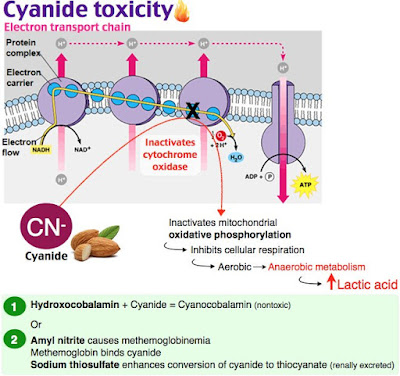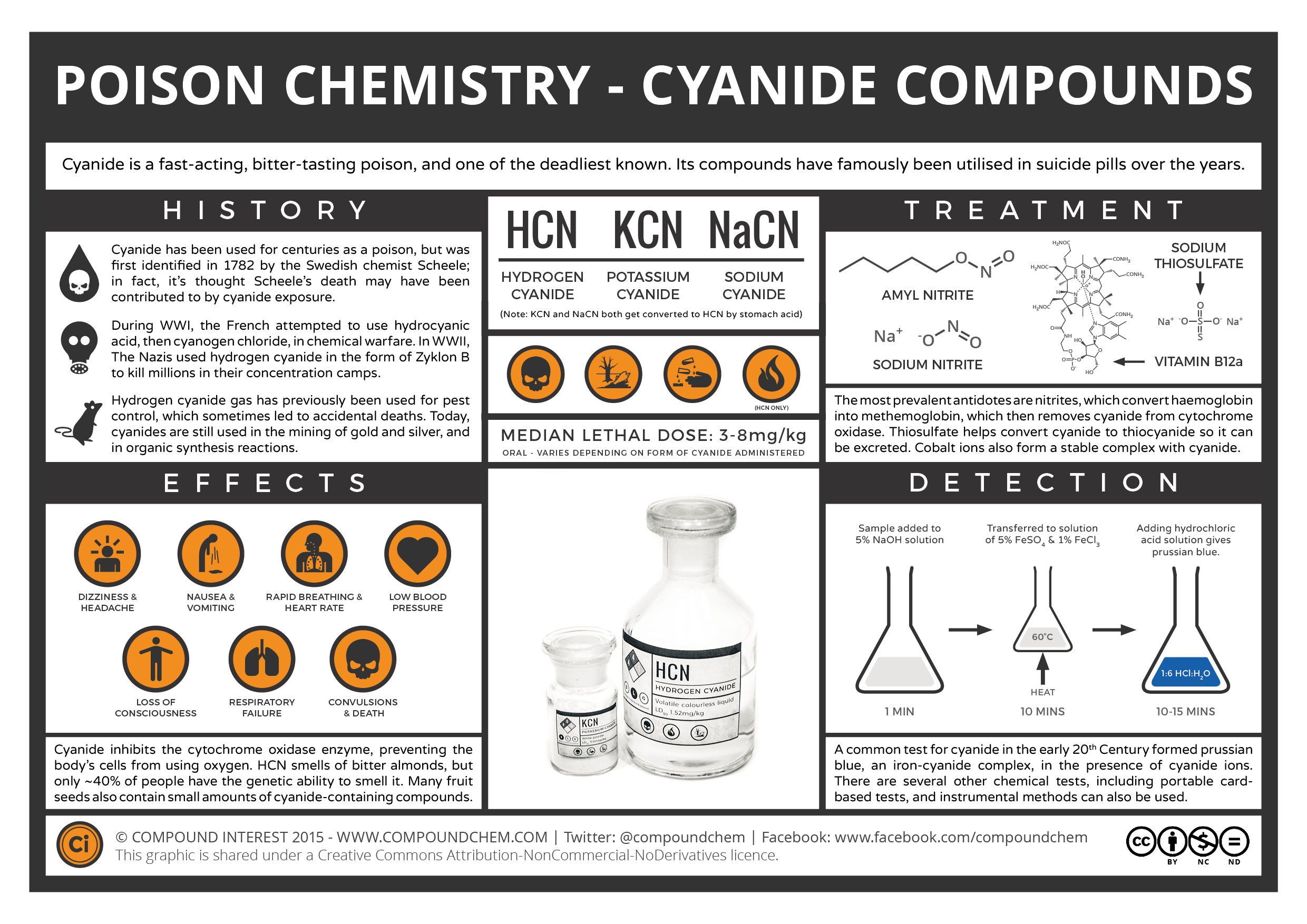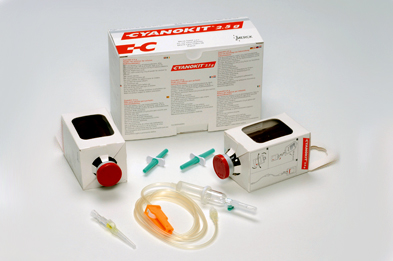
In more severe cases the patient will have dyspnoea, bradycardia, hypotension and arrhythmia. In milder cases of CN poisoning the symptoms are headache, nausea, vertigo, anxiety, altered mental status, tachypnea, hypertension and there may be an odour of bitter almonds in the patients expiration. CN also stimulates the nociceptors, leading to a brief sensation of dryness and burning in the nose and throat. Initially, the symptoms include a brief period of hyperpnoea, due to direct stimulation of the chemo receptors of the carotid and aortic bodies by CN. CN can be distributed in the body within seconds and death can occur within seconds or minutes after a large dose.


Since CN is a small lipid soluble molecule and mainly undissociated, distribution and penetration of CN into cells is rapid.

HCN is easily absorbed from all routes of exposure.


 0 kommentar(er)
0 kommentar(er)
